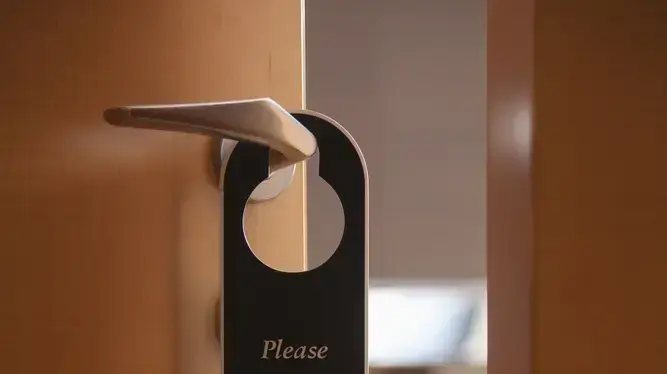Icon: enlarge
Multi-family houses (in Kiel): When creating new living space, you can rely on the full support of the tax office
Photo: Frank Molter / DPA
There are two types of landlords in Germany.
Those who have recently built or bought their home and want to make money from it.
A few hundred thousand.
And those (the vast majority) who have owned - or inherited - an apartment or house for a long time and are renting it out.
For both groups, it is not difficult to make money with real estate these days - as long as the property is in the right place.
And as long as you, as the landlord, keep an overview when dealing with the tax office.
Sometimes it's not that easy.
And also looks very different, depending on which group you belong to.
First the more difficult case:
Tips for builders and buyers
House or apartment should not be too expensive so that it is worth renting out.
You can roughly calculate your rental risk by dividing the purchase price with all ancillary costs (real estate transfer tax, notary and possibly broker) by the basic rent that you can achieve for your house or apartment.
If your apartment costs a total of 300,000 euros and you can earn 1000 euros basic rent, the apartment would not be expensive and theoretically paid off with the rent after 25 years.
To the author
Photo:
Financial tip
Hermann-Josef Tenhagen
(born 1963) is editor-in-chief of "Finanztip".
The consumer guide is part of the non-profit Finanztip Foundation.
"Finanztip" is refinanced via so-called affiliate links.
More about it here.
Tenhagen was previously editor-in-chief of the "Finanztest" magazine for 15 years.
After studying politics and economics, he began his journalistic career at the "daily newspaper".
Today he is an honorary member of the supervisory board of the cooperative.
On SPIEGEL.de, Tenhagen writes weekly about how to handle your own money properly.
At least if you don't have to pay interest on a real estate loan and nothing in the house will break in 25 years that you have to renovate.
In addition, you have to bear the costs for the administration yourself, because unlike the normal ancillary rental costs such as property tax, heating, water, garbage and house cleaning, you are not allowed to pass them on to the tenants.
So the calculation is not that easy.
And then there is the tax office.
On the one hand, you can state
losses that
you make after the construction or purchase despite your rental income - and thus save a lot of taxes.
This includes running property costs, travel and travel expenses, but above all the debt interest from the financing, if you have financed with credit.
Quite a few landlords make a tax loss, especially in the first few years.
The great thing about it: You can offset this against other income - unlike, for example, with share losses.
Provided, of course, that you make money in other areas.
You can also
write off
the
cost of the building in tax
.
The state assumes that houses will have to be completely renewed after 50 years.
As a buyer, you are therefore normally allowed to sell two percent of the building's value each year.
Only the costs of the building count here, in our example maybe 200,000 of the 300,000 euros.
The cost of the property does not count, after all, it does not wear out.
In order to avoid disputes with the tax office, you should write in the notarial purchase agreement how high the proportion of the building value is.
My tip: In order to avoid disputes with the tax office, you should write in the notarial purchase contract how high the proportion of the building value is.
As high a proportion as possible is advantageous for you, but it must be realistic.
Tax offices find distributions based on a calculation aid from the Federal Ministry of Finance particularly convincing.
In the long term, however, the tax office expects that you will make a profit with your rented property.
And only if you make this plausible to the tax office, you can actually deduct the losses permanently.
As soon as the tax office comes to the conclusion that your rental is a pure "hobby", then the lucrative tax losses are gone - possibly even after the fact.
You can currently rely on the full support of the tax office when creating new living space.
The state wants to steer its citizens in such a way that they create additional living space.
For example, it is sufficient to convert the attic floor into a separate apartment.
If you do that, you can deduct five percent more of the building value in each of the first four years, in our example an additional 10,000 euros per year.
This new temporary special depreciation according to Section 7b of the Income Tax Act saves high earners many thousands of euros in taxes in the first few years.
An important second rule for new landlords.
It is better not to renovate too much in the first few years after purchasing.
During this time, you can deduct a maximum of 15 percent net of the acquisition costs for renovation immediately from tax - as so-called maintenance expenses.
Net means here that the tradesman's invoices may not exceed this 15 percent net, i.e. without tax.
If the costs are higher, the tax office assumes that these costs, like the purchase costs, are actually necessary to make the house habitable at all.
The result: As with the purchase price, you can only claim the costs for tax purposes in installments over the next 50 years.
Have you calculated everything and have come to the conclusion that it will be worth it?
And you don't have to make any profits in the first few years either?
First of all, you may want your children or parents to be able to live cheaply in the newly purchased apartment.
The tax office also allows that.
You are allowed to set a lower rent when renting to relatives - and still report the resulting losses to the tax office.
So far, the lease should look the same as with strangers, only the rent itself may be reduced to two thirds of the usual rent level.
From next year you can even reduce the rent to half of the usual.
Prerequisite: You submit a profitability calculation to the tax office that shows how you can still achieve a surplus over 30 years.
Otherwise the tax office can come to the conclusion that buying a home is not an investment, but a hobby.
And with the so-called hobby in tax office jargon, you cannot claim any costs from the tax - but then you do not have to pay tax on rental income.
Tips for previous owners and heirs
You inherited the house together with your sister or brother, it is debt free.
And now you are wondering whether you want to become a landlord or would you prefer to sell the house at the currently often attractive prices.
Here, too, the tax office plays a central role.
If you make a profit from renting out, you will of course have to pay tax on them.
However, you can claim all business expenses that you have in connection with renting the property against your tax.
See above.
For example, the regular visit to check the property on the other side of the country to see if it is all right.
Roughly, proceed in the same way as the buyer in your considerations.
You calculate with the net rent without heating that you (can) achieve.
Finally, you can pass on the classic ancillary costs to the rent.
For your calculation you have to deduct the costs for the property management from the basic rent, either through a company or, if you do it yourself, your own costs.
In addition, there are maintenance costs that you should take into account.
Many property managers expect monthly reserves of one euro per square meter of living space.
But often even this flat rate is not enough.
Especially with an inherited property, a major construction project is often pending.
You then have to inject money.
Other risks are easier to manage.
You can also rent out the apartment as a vacation rental, as long as you correctly state the income, including those from Airbnb.
You can even get part of the annual property tax waived if the apartment is vacant.
If after some thought or experience of several years you come to the conclusion that being a landlord is not for you, then of course you can sell the apartment or house.
If you wait long enough, your sales profit will be free of income tax.
Only if you have acquired the house within the past ten years and are now selling it at a profit would you have to tax this surplus as "capital gain".
So it is worth checking the calendar again before such a sale.
And then another very personal tip from me.
At the moment, apartments and houses can actually often be sold at attractive prices and thus achieve a considerable return.
But you must then invest this money successfully.
So it sells best if you already have a plan for the sales proceeds.
Icon: The mirror









